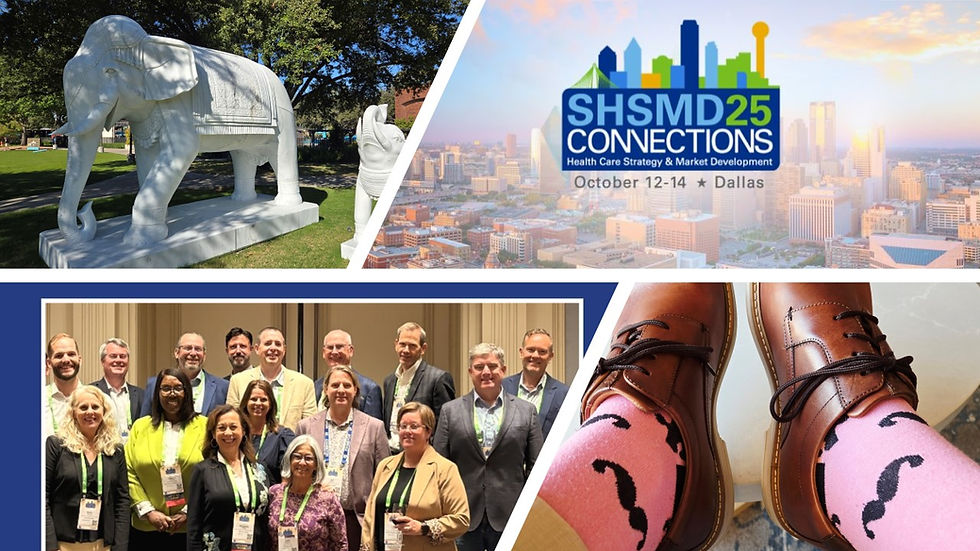Experts are smarter than us. That’s why they are experts!
- Alan Shoebridge

- Sep 28, 2021
- 4 min read
Updated: Sep 30, 2021

It’s a massive understatement to say that society’s response to the COVID-19 pandemic has exposed some faults and raises a lot of concerns about our future. One of the most concerning developments has been the ongoing erosion of trust in expertise and the spread of misinformation and conspiracy theories.
“I’m doing my research” has become the motto of anyone who doesn’t agree with the scientific consensus on COVID-19. I think we all saw this example:
In far too many cases when people say they are doing “research” that generally consists of reading posts on Facebook from people who have no – or clearly disputed – credentials that qualify them to speak on issues of public health. When that happens, misinformation takes hold and it becomes increasingly difficult to get people back on track.
Here is a case in point. This email came in response to an article published by my healthcare system about getting vaccinated to avoid hospitalization:
“You should be giving COVID patients monoclonal antibodies, and using Vitamin D, Zinc and Ivermectin too. Use antibiotics to prevent long infection, and lung-steroids to lessen inflammation. Immediately upon admission. Watch your survival rate skyrocket.”

If only physicians around the world were following this advice, containing COVID would be so easy! You can tell from that message that the person has heard every bit of alternative advice for the prevention/treatment of COVID-19 and is embracing those strategies instead of just getting vaccinated. I did look up the name of the person and I know you’ll be shocked to learn that he is not a doctor.
It’s amazing to me that someone would offer that advice to a healthcare system filled with trained physicians and infectious disease specialists who are treating COVID patients every day. Those are the real experts.
A major reason we’re faced with this situation is the continuation of distrust in expertise that has been growing for at least the past 20 years. Author Tom Nichols captured it well in his 2017 book “The Death of Expertise; The Campaign Against Established Knowledge and Why it Matters.”
“At the root of all this is an inability among laypeople to understand that experts being wrong on occasion about certain issues is not the same thing as experts being wrong consistently on everything. The fact of the matter is that experts are more often right than wrong, especially on essential matters of fact. And yet the public constantly searches for the loopholes in expert knowledge that will allow them to disregard all expert advice they don’t like.”
Doesn’t this sound exactly like what has happened during the past two years? Experts made early mistakes like telling people not to wear masks briefly and we haven’t been able to get past those missteps since.
Should we ALWAYS trust experts?
I know there are times when thinking outside the box is important and significant discoveries are made by going against the established consensus. However, when more than 99% of public health experts are advising a certain course of action regarding treatment or prevention of a contagious disease, it’s highly unwise not to follow that advice.
Part of this resistance to expertise might come from an unwillingness to accept that there are others who are smarter than you. In short, your opinions on a subject are not equal to those of an expert if you also are not an expert on that same subject. That’s hard for many Americans to accept. Nichols describes this situation well,
“The growth of this kind of stubborn ignorance in the midst of the Information Age cannot be explained away as merely the result of rank ignorance. Many of the people who campaign against established knowledge are otherwise adept and successful in their daily lives. In some ways, it is all worse than ignorance: it is unfounded arrogance, the outrage of an increasingly narcissistic culture that cannot endure even the slightest hint of inequality of any kind.”
This quote made me think of some of the responses I received to my posts on LinkedIn about how COVID-19 has impacted healthcare workers. Educated people in good jobs with impressive titles were pushing the worst conspiracy theories in the comments. It was shocking to me.

So what can we do?
Double down on sharing good information. As healthcare marketers and communicators, we need to keep getting our experts out in front of the public. We must combat misinformation and reach people who are open to embracing facts and advice.
Explain things clearly. Experts often aren’t adept at explaining complex subjects simply in terms that most people can understand. It’s important to provide clear instructions and use common language.
Look for people who might be persuadable. This is a tough one. I mostly don’t respond to comments on my social media posts from people who are clearly trying to bait me into a debate where they can share misinformation. However, if you have the opportunity to hold a civil discussion with someone and answer questions that are being asked in good faith, you should take it.
This situation is frustrating, but the only way through it is to keep presenting good information, staying positive and pressing our friends, colleagues and family members to rely on facts and expertise.



Comments